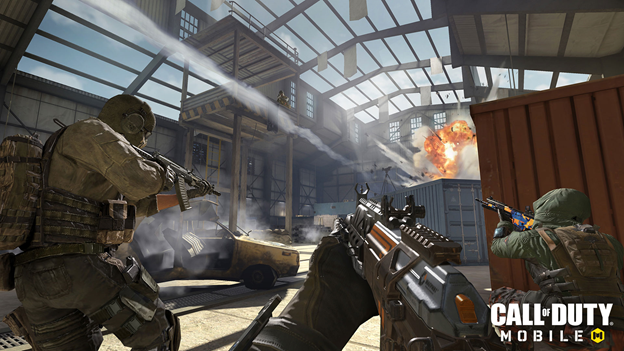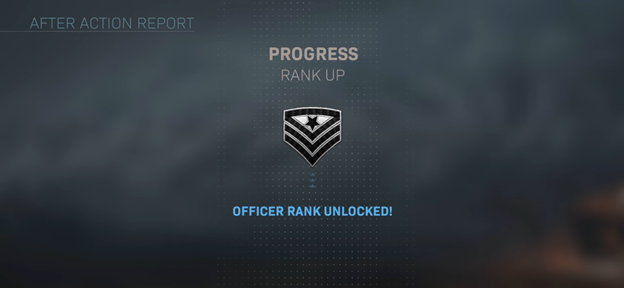How to Overcome Your Call of Duty Addiction

Call of Duty has been one of the most popular first-person shooters on the market since its release in 2003. Churning out games annually for almost two decades, the franchise has acquired a staggering 53 million monthly active players. You can bet that a large number of these are brand loyal fans from the Modern Warfare golden era that brings that nostalgic feeling to many who experienced it. Sadly for some, the game goes beyond a trip down memory lane as gamers struggle to give it up. In this article, we are going to break down the main addictive qualities of Call of Duty and how you can finally overcome your addiction.
Content
Why is Call of Duty So Addictive?

The first thing we can attribute to Call of Duty’s addictive nature is the franchise’s ability to capitalise on all gaming platforms. The developers have done a great job in making it easy to access for all players from console, to pc and even mobile. One of their most successful instalments to date is Call of Duty Warzone which is a free-to-play battle royale, making the barrier for entry even lower as players don’t have to spend a pretty penny to join in the fun.
The pandemic has done a lot for the game in limiting people’s ability to go out and socialise so instead many people jump on for a quick game of Warzone. Understandably, making the game easily accessible in a time where millions are forced to stay inside is a smart business move but it has come at an addictive cost for some.
It’s important to note that a lot of the addictive qualities that Call of Duty demonstrates is not exclusive to this game in particular and this is not an attempt to vilify the game developers. There are numerous addictive video games out there and our goal is to help gamers create a healthy relationship with gaming. Without any further ado, let’s take a look at them.
Measurable Growth
Since the days of Call of Duty 4: Modern Warfare levelling up and prestiging has been all the rage. A great sense of esteem was created around those who were higher ranks growing up and somewhat increased a person’s social stock market value. As the game has progressed through the years they have added more content with an ability to level up guns, operators and battle passes. The satisfaction of levelling up, progressing and receiving these rewards are a big factor in what addicts individuals to these games.
We all have a desire to see measurable growth and success. Hence Call of Duty provides this in the form of seemingly endless content and challenges. The same way people love to work hard and achieve their goals like passing exams, getting promotions or starting up business projects. The game offers players fun and achievable goals like the chance to grind for the hardest camouflages for your guns.
Just as we revere people for accomplishing difficult things in life, gamers will revere those invested enough to complete these camouflage challenges. Those addicted to Call of Duty receive their measurable growth in life from progressing in the game. Which, in the long run, is detrimental to the person’s motivation and desire to live a fulfilling life outside of gaming.
High Stimulation
If there is one thing Call of Duty does well as a first-person shooter, it’s creating intense fast-paced gameplay. Players can sprint, jump and slide around small crowded maps with gunfights and engagements every few seconds. This hectic in the pocket playstyle is what gives so many gamers such an intense adrenaline rush.
It’s easy to see how adrenaline junkies can be so attracted to this game. Being able to face danger from the safe seat of their chair puts people off going outside to find this rush and take risks elsewhere.
This high level of stimulation is also closely associated with escapism, how an individual can be so immersed in the game that it takes their mind away from any negative sensations they are feeling or situations they might be in. For now, knowing that Call of Duty with its highly stimulating gameplay can be enough to keep players locked in. If you’d like to know more about escapism as a negative effect of video game addiction then take a look at our other blogs.
Competitive Nature
Another aspect that makes Call of Duty so addictive is its competitive environment. As many players might understand, tensions run high in a close game and the glory of winning or burning frustration of losing can often feel like life or death. This feeling of competition and wanting to be better than your opponents drives players into investing long hours into the game to improve.
Players are also given ample opportunity to test their skills in ranked game battles or competing in external online tournaments with friends. The game is no stranger to inducing controller smashing fits of rage. This is just testament to how frustrating it is to be on the receiving end of a superior player’s wrath as they spawn-kill you for the fifth time in a row. This is usually what weeds out the casual players from the ones that get in too deep. Furthermore, making hitmarker effects and killstreaks so satisfying, conditions the player to strive to improve and invest time into the game.
Signs of Call of Duty Addiction

Gamers looking for help with their addiction can sometimes be unsure of how to tell if there’s a problem. One thing to be aware of is the guidelines set by the World Health Organisation. They explain that if a person has experienced “significant impairment of personal, family, social, educational or occupational functioning” over a 12 month period due to excessive gaming. This is grounds to diagnose an individual with internet gaming disorder, more commonly known as video game addiction.
However, we understand that it can be difficult to look back and see video game addiction in a broad sense so let’s take a look at some specific symptoms and red flags in detail to help eliminate any doubts.
Damage to Relationships
If you feel like you have been neglecting your family and friends to play Call of Duty then this may be a reason to consider cutting down. It might not always be so obvious because playing video games can be used as a social activity to connect with friends online. However, if these online relationships begin to take precedence over our real-life ones it could be problematic.
If you find yourself forgetting important occasions or birthdays and missing social events to seclude yourself and play Call of Duty it can often exacerbate depressive symptoms that a person might be feeling.
Given how video game addiction affects work, concentration and motivation it is not uncommon for professional relationships to take a dive. As an employee slacking off at work, or as an employer neglecting your co-workers in order to satisfy your gaming habits could be another indicator of video game addiction.
Losing Concept of Time When Playing
When you play video games do you find hours fly by like minutes? Obviously, the saying time flies when you’re having fun reigns true but this is also indicative of how immersed in the game you become. If your focus is so drawn into the game that you lose track of time, miss meals and mess up your sleeping pattern then video game addiction might be to blame.
Lying to Conceal Gaming Habits
Finally, video game addiction can come with a lot of guilt, shame and anxiety. A lot of gamers who acknowledge that they have a problem with gaming refuse to seek help due to the embarrassment they feel over their gaming habits. Many feel as if this is something they should be able to simply cut out themselves on a whim but often this is not the case. Of course, severity and symptoms vary from person to person, but video game addiction is a genuine mental health condition, therefore, many people do need help and there is no shame in looking for it.
Other signs of video game addiction include:
- Decline in academic performance or work
- Obsessive thinking about video games
- Neglecting health and hygiene
- Irritable and agitated when not playing
- Decline in mental wellbeing
If you happen to notice any of these symptoms we recommend that you seek professional help. Many of these symptoms are shared with different mental health conditions so getting an opinion from your general practitioner is advised. Video game addiction programs are perfectly suitable to use alongside any professional treatment you might be receiving.
Overcoming Your Addiction

When it comes to quitting and cutting down we understand that many of you might have attempted to do it in the past but just couldn’t quite commit. Here we are going to go through step by step the best way to crack down on your Call of Duty addiction and improve your relationship with gaming in the long term.
Identify Why You Play
There are numerous reasons why we might like playing video games. As we mentioned earlier some might love the competition, measurable growth and high stimulation. While others might enjoy it as an opportunity to unwind in the evenings or meet up with friends. Our objective here is to determine why we play the game. So think carefully and be honest about your intentions when you load up Call of Duty.
Detox From Playing Call of Duty
Hopefully, we should be more acquainted with why we play the game and should feel slightly more comfortable with the idea of parting ways with it because it’s time for a detox. This means no Call of Duty or any other video games for 90-days. Now, this might sound strange but there are benefits to being away from gaming for this long.
- It allows our brain time to recover and regain its sensitivity to dopamine which is proven to show a reduction in addictive symptoms
- We gain some perspective on life without video games and realise that there is a lot more to it
Now quitting outright for 90-days will be hard and temptation will be looming. So we will talk about how to get the most of your detox and how to prevent relapse. For now, we recommend setting a date in your calendar, being stern with yourself and sticking to that commitment. If you get caught in the loop of one more day you will be back to square one again.
Tell Your Family and Close Friends
Tell your family and close friends about your commitment! It is important to create a network of supportive people around you who can listen to how you’re feeling and hold you accountable. When recovering from any addiction people feel like they’re the only one in the world dealing with this problem. Hence the purpose of self-help groups. We understand that not everyone can have access to these sorts of communities so forming your own circle can be just as powerful.
Family and friends can also help to set limitations for you if you’re struggling to stick to your self imposed limits. Things like giving them your console or passwords during your detox can help keep you away when you don’t feel strong enough.
CBT To Overcome Withdrawal Symptoms
The most important step, as leaving initially might be the easiest part, is maintaining it. After you quit playing video games there will be withdrawal symptoms that can vary in intensity from person to person. Thus the most important step in the recovery process is to practice some CBT exercises.
CBT stands for Cognitive Behavioural Therapy and is the gold standard when it comes to treating addiction. It is what trained professionals will guide you through during in-person therapy and their teachings can be used at any time. CBT focuses on creating healthier thinking patterns to inspire healthier actions in line with our values and commitment to cutting down on video games.
Cognitive behavioural therapy can be most effectively practised through meditations as this is one of the best ways to engage with our thoughts. Here is a meditation we offer to our users to help take power away from their negative thoughts and cravings when they experience them. We recommend sitting in a quiet room free from any distractions to get started.
- Gently close your eyes or focus on a point in the room. Imagine that you are lying down in a meadow. Your head is resting on the soft lush grass and you are looking up into the blue sky. Clouds float overhead drifting with the current of the wind.
- With every passing cloud place a thought on it. For every new thought you have, stick it on a cloud and simply watch it float out of view.
- A thought might be “I’m not having any thoughts,” “This is hard,” or “What does this have to do with my gaming addiction?” Those are all thoughts and should all be placed on a passing cloud.
- Just notice them as they are in the sky. Some clouds take longer to drift along than others. Some clouds are larger and take up more room in the sky. But just observe them as they float in the sky full of thoughts.
- Notice that they always float gently out of view and that new clouds float in.
- Find comfort in knowing that whatever thoughts you experience they always float out of view
- When you feel negative thoughts and cravings understand that they will always pass and always float out of view
Hopefully, this helps you to ease some of your cravings and negative thoughts during your detox. If you’d like to find out more about how you can overcome your addiction, consider taking a look at the rest of our blog.








